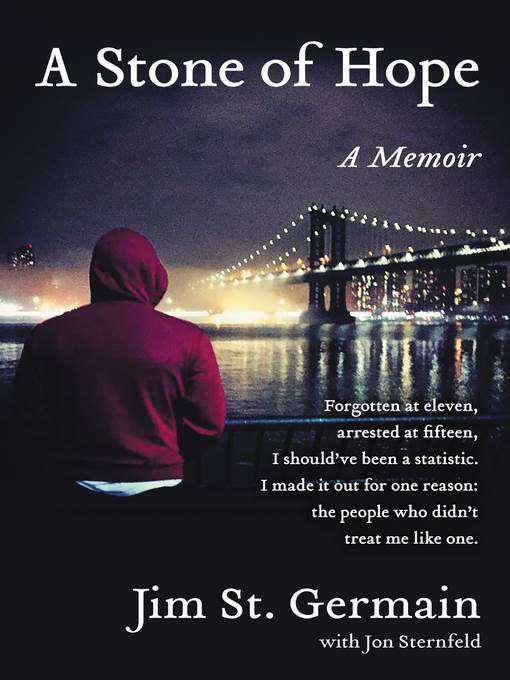
A Stone of Hope
A Memoir
- اطلاعات
- نقد و بررسی
- دیدگاه کاربران
نقد و بررسی

Starred review from May 29, 2017
In his first book, St. Germain, cofounder of the nonprofit group Preparing Leaders of Tomorrow, describes growing up in Brooklyn’s violent Crown Heights neighborhood. St. Germain was born in Haiti but moved to the U.S. with his siblings in 2000. Writing with journalist Sternfeld (Crisis Point), he vividly describes the fear and loneliness of life in Brooklyn without his parents, the adjustment to his grandmother’s cramped apartment, and, as he got older, how he negotiated the violent gangster world of the Crips and Bloods. St. Germain longed for a male role model, and concedes that his grandmother, as hard as she tried, couldn’t keep him honest amid the “tight-jeaned girls and hustling corner dudes.” He describes himself as follows: “From a young age, I’d been a social chameleon with a survival mentality.” He began stealing, robbing, dealing drugs, and allowing “the game to suck him in like a vacuum.” At age 15 he was arrested for dealing crack cocaine, but instead of going to prison he was sent to a detention and rehabilitation facility, where he was mentored, educated, and learned to embrace a sense of self-worth. He soon became an advocate for at-risk children. Like Wes Moore’s The Other Wes Moore, St. Germain’s gritty and self-reflective memoir is an excellent and informative cautionary tale.

May 15, 2017
A young African-American man's memoir of a life of crime redirected.Born poor in Haiti, St. Germain came to America with his family as a youth and, in the streets of Brooklyn, lost himself in the illegal economy that thrived on the streets. He fought and stole, "trying to process this new world and answer my own questions, all the while wearing a tight mask that showed none of this." As a self-styled "street pharmacist," he earned the nickname Buffett, because, as a helpful older friend explained, "Warren Buffett is gangsta," a model money machine among the Scarface crowd. Rather than becoming filthy rich, as that name portended, St. Germain fell into the system, winding up in Spofford Juvenile Center in the Bronx, "a notorious intake place for troubled teens" whose alumni included Mike Tyson and rapper Fat Joe. But there, St. Germain was given an opportunity: rather than the normal machine of turning broken youth into broken men, he was placed in the Boys Town boot camp system, which teaches values of responsibility and respect. Said a staff member, "the purpose here is to retrain your behavior," and retrain St. Germain's behavior it did. "It went against everything I'd ever known," he writes. At first, he went along with it to game the system and gain the merit points that earned privileges, but eventually he became a committed advocate of the system--and, moreover, a devotee of reading and education, guided by books of African-American history and in particular a memoir called Dreams of My Father, affording St. Germain "a kinship with this mixed-race senator with a foreign background, a funny name, and the gall to think he could change the world." An affecting and earnest testimonial to the power of a humane criminal system built on rehabilitation more than punishment.
COPYRIGHT(2017) Kirkus Reviews, ALL RIGHTS RESERVED.

March 1, 2017
Born impoverished in Haiti and raised by an alcoholic father in Brooklyn's Crown Heights, St. Germain was a convicted felon by age 15. Fortunately, he was placed in a nonsecure detention facility and through good mentoring got his GED and a college degree. Then he returned to Crown Heights to help youngsters like his former self. With a 50,000-copy first printing.
Copyright 2017 Library Journal, LLC Used with permission.




دیدگاه کاربران